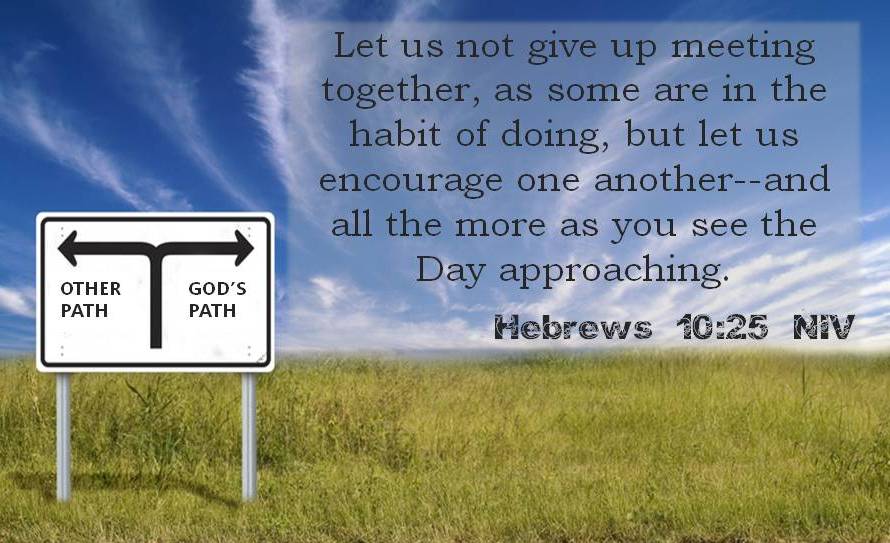Home | About Us | Directions | Bulletins | Sermons & Audio | Cross Of Christ Studies | Classes | Student and Parent Resource Page | Dangers Facing the "Non-Traditional"
"As Long As It Doesn't Harm Anyone"
by Doy Moyer
One of the most prominent moral justifications heard today is that as long as the practice doesn’t harm anyone, then it is right and should be allowed. The primary argument this is being used for today is gay marriage, to no one’s surprise. However, it carries broader applications, and those applications aren’t just about politics.
“The practice is not harming anyone, so you need to let them do what they want.”
Doesn’t that just make sense? How can we not agree with that?
First, the argument from “no harm” makes assumptions not only about what “harm” is or is not, but also about who should or should not perceive something as harmful.
We might notice that when people talk about what doesn’t “harm” anyone, they don’t really define what they mean. They assume that everyone’s on the same page, and proceed to argue from their assumptions. Interestingly, some of the same people will argue against all religion on the basis that they believe religion “harms” people, showing that “harm” is often a matter of perspective.
What does it mean to “harm”?
“Harm” means to injure or do damage to something. Something good can harm something bad, and something bad can harm something good. Truth will injure the false, and what’s false can damage the cause of truth. The issue shouldn’t be so much, “does it cause harm?” but rather, “is it right or wrong?” What we should always be concerned about is doing what is right, and “no harm” isn’t to be equated with “right.” “Harm” is too fluid of a concept to be anchored to “right” or “good.” If what’s good harms what’s bad, then that’s as it should be.
Is there such a thing as universal harmlessness? Is there really a practice that is totally and completely harmless to everyone and everything in all circumstances? When people say that a practice “doesn’t harm anyone,” are they making some universal statement of truth? Or are they focusing on a particular circumstance? Are there bigger issues that we ought to think about?
What of something considered harmful to one group or person, but not another? Do we ignore part of the equation in order to push an agenda? Who gets to decide that? Who is the authority on what harms people?
There are different kinds of harm, including physical, emotional, and moral harm. These seem most obvious, but let’s also consider the idea that something can be subtly harmful overall because it chips away at and destroys the structural foundation of a society. When it comes to matters like living together apart from marriage, having children apart from marriage, easy divorce, or gay marriage, we are looking at practices that challenge the infrastructure of the family, which in turn harms the structural foundation of our society.
By redefining marriage or family, against both God’s revealed will and all conventional wisdom of many thousands of years, we are naive if we think that there is no harm to the structural foundation.
Of course, the worst of all harms is spiritual in nature. Sin is always the real harm, so if something is sinful, as defined by God, then it is absolutely harmful to the ones who practice the sin as well as the surrounding society. We all ought to desire avoiding that.
“Righteousness exalts a nation, but sin is a disgrace to any people” (Prov. 14:34).
If we take something that is sinful, then argue that it is acceptable because it doesn’t cause anyone “harm,” then we have misunderstood the true nature both of what is harmful and the consequences of sin. We are no different from those who called good evil or evil good (Isa. 5:20).
Rather than asking whether something is harmful, we need to ask whether something is right. “Right” isn’t defined by our own selfish perspectives, but by a Creator who ultimately knows what is most beneficial or harmful to all of us.
Finally, the gospel addresses the situation in that it calls on us to repent of sin while offering forgiveness and reversing the eternal effects of what sin does to us (Acts 3:19). When we deny the harm that sin causes, then we deny the power of the gospel to overturn our sinful condition. This will result in irrevocable and permanent harm to us, and none of us can afford that. This is why we need to diligently teach the truth that will set us free from sin (John 8:31-32). This isn’t about taking a political position; it’s about reaching a lost world that needs to come home to God.
Other Articles by Doy Moyer
Pathetic Dust or a Living Hope
You May be Surprised to Learn
Moralizing Over the Gospel
Alcohol and Wisdom
Brotherly Love
The Logic of Authority
Was Jesus Literally Forsaken?
Baptism and the Blood
The Problem With Creeds
For Past Auburn Beacons go to:
www.aubeacon.com/Bulletins.htm
Anyone can join the mailing list for the Auburn Beacon! Send your request to:
larryrouse@aubeacon.com









